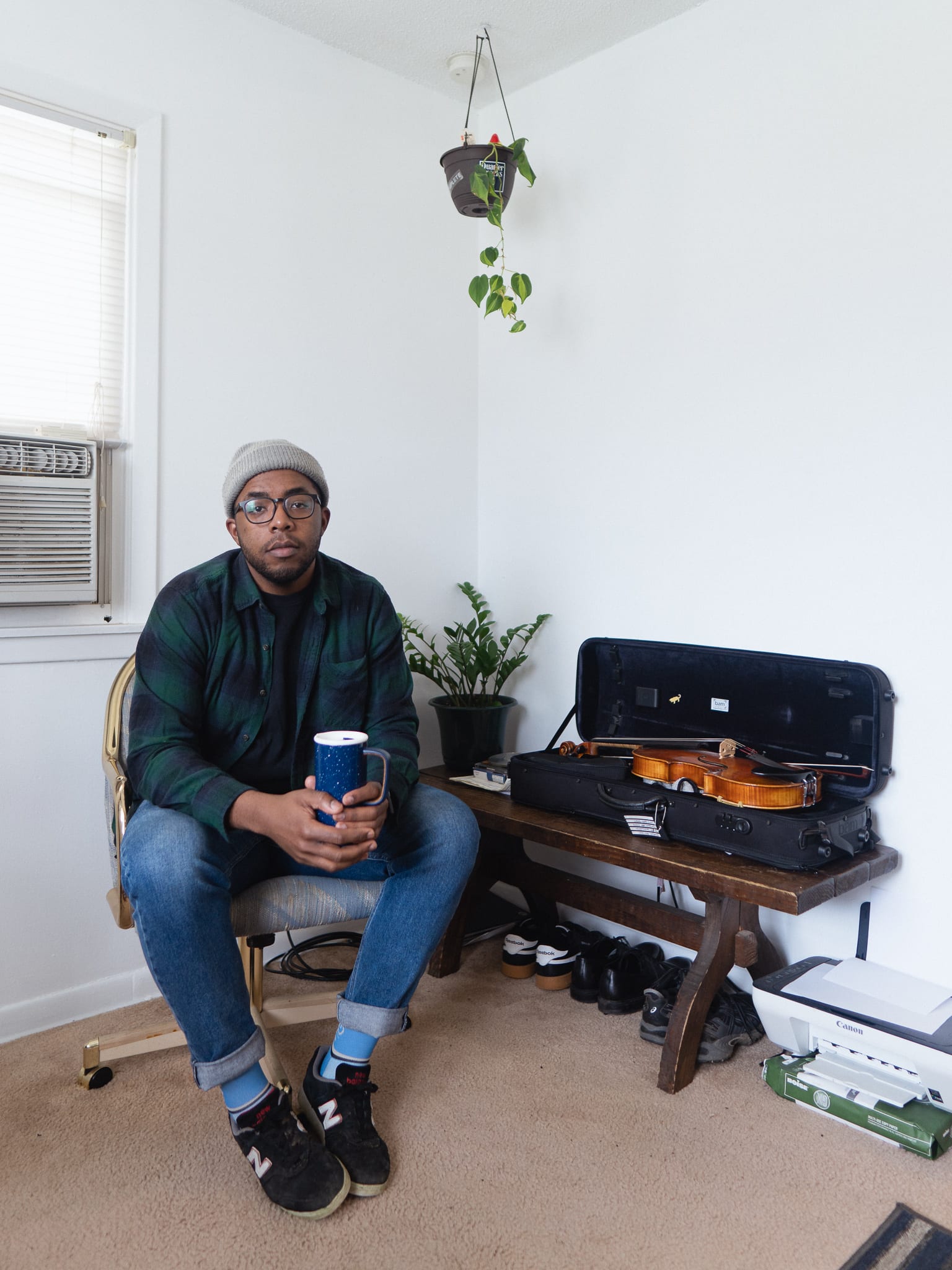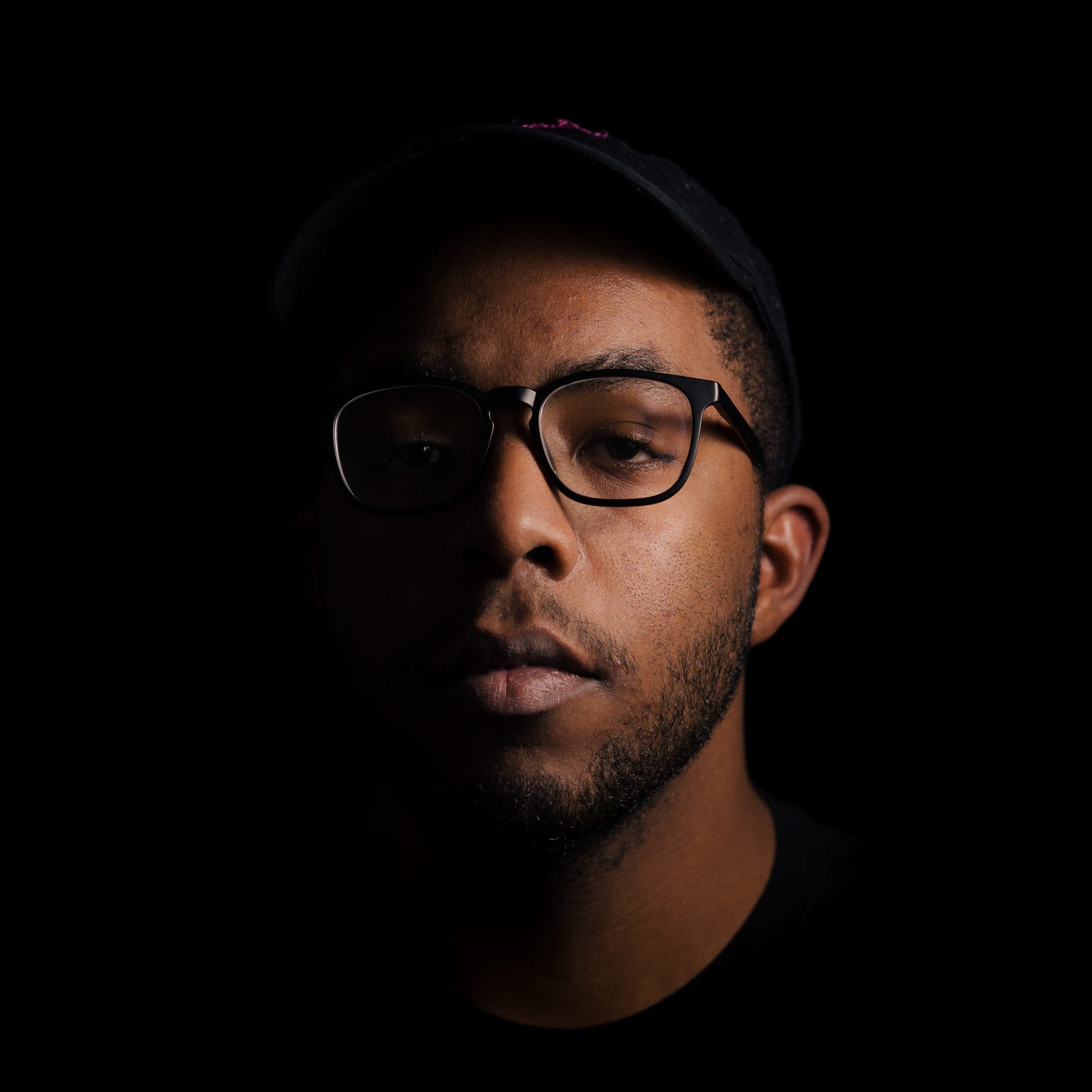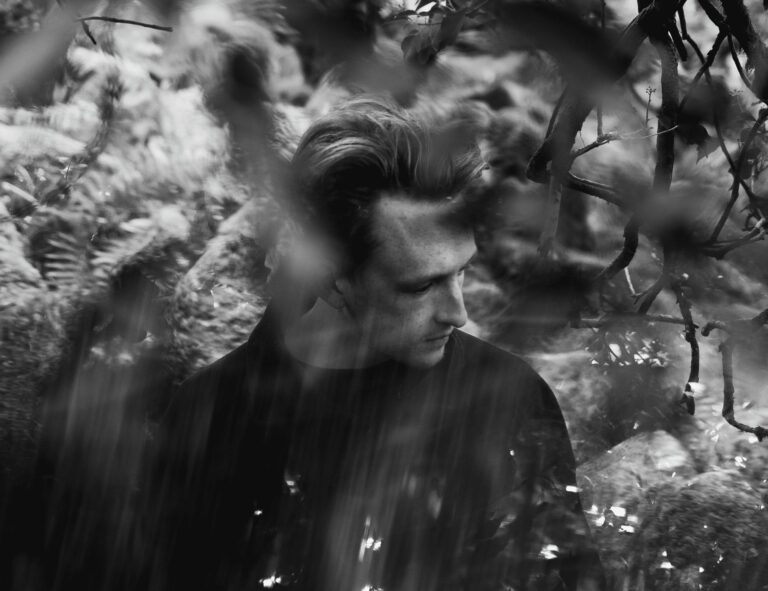Duncan Winslow isn’t your typical drum & bass figure, for several reasons. First off, he’s based in St. Louis, Missouri out in the American Midwest, an area of the world more known for its wide open spaces than its drum & bass. He’s also unique in that you might know him not from his music but his Youtube channel, on which he uploads a litany of detailed, drum & bass orientated learning resources focused on understanding the ‘why’ of production, not the ‘how’.
Whilst his Youtube channel is where the recognition started, he’s begun to pick up steam in the doing of music, rather than the showing. With a single released earlier this year on Mitekiss and Mr Porter’s Goldfat Records and a track on the recent Headsbass Beats In Mind VA album, Duncan is consistently proving to us that his distance from the usual 174bpm hunting grounds can help create a uniqueness, an individuality.
Speaking to UKF from his home in St. Louis, he tells us that this freedom of manoeuvre is a key part of his creative outlook and something he tries to bring to all of his endeavours and, considering his unique backstory, we were keen on finding out a bit more about where Winslow came from.
How did your relationship with drum & bass start?
I want to say 2013 is when I really started listening a lot. I guess before that I’d hear it in video games and stuff, like every Youtube comment says ‘this should be in Need for Speed Underground’ [laughs].
[laughs]. How old are you? Are you a student?
I’m 26, and I’ve got one semester left of my master’s degree in music education, which makes sense.
Yeah, that definitely tracks. What was it that grabbed you about drum & bass?
I started getting into production in 2011 but I was making house and trance because that’s what my friends were doing and it was popular over here. Then after a few years I got really burnt out of everything, so I took a break for like a year and just didn’t write anything. It’s like a rat race in music where you have to put something out every week, and although looking back I clearly didn’t have to do that because I was just doing it for fun, it’s what kids on the internet were doing.
You felt that pressure.
Yeah, because like with everything, other people are doing this so maybe I should, and it wasn’t until now that I think ‘oh maybe that wasn’t the best idea’.
So it took a couple of years for you to find that area of production which actually made you click?
Yeah, in that break I was listening to Keeno, his album Futurist, because I’m a string player and I’ve been playing in orchestras since I was eight years old. So, when I started listening to him it was like ‘wait, this is what I know’, but it’s happening in a different way and it’s really working so I want to give that a shot. It’s really what attracted to me to it. Then the more I got into it, it was like yeah, this is good shit for me [laughs]. Something took off.
You found something familiar that you wanted to explore more, but in a different context?
Yeah, it felt like more of an organic approach instead of the house and the EDM stuff which is clearly synthesisers and people just worrying about the drop. But playing instruments and stuff, it’s bigger than that, it can be something that pure synthesis cannot.
You started your Youtube channel two years ago, what was the impetus behind that?
I think it was because I couldn’t find the type of videos that I was looking for when I was trying to learn things, so I figured I’d gotten to the point where I could just make them instead. Somebody might be going through the same thing, so that’s what started it.
You wanted to see the lessons that you didn’t get when you were learning?
Yeah, exactly. You can find how to make a certain sound, that’s everywhere, but there’s nothing on what you do once you have a sound, or how you build on an idea, so I thought I could try and tackle that.
I really like your ‘what we can learn from…’ series, where you pick out individual artists and explain how they’ve influenced your production. What are some of the most important lessons you’ve learnt from doing that?
It’s listening and getting ideas from other people and trying out new things, because I think a lot of people that I did, for one reason or another, stuck out to me. Their sound was different, or they are at the pinnacle of a certain style. Sub Focus is at the top of dancefloor drum & bass, Dawn Wall is a whole enigma in the Integral world with Mohican Sun. Everything I tried to point is specific and could be used; the anonymity of Dawn Wall and creating an image of yourself with the graphics behind them; writing music in a more traditional, composition sense would probably be London Elektricity.
Artists which all capture something worth explaining?
Yeah, yeah. I did one for Calibre, how he’s just completely in his own area and goes against the whole ‘throw everything into the kitchen sink for your music’ because his is just stripped back and it’s even more effective. So, it’s kind of pulling these ideas, I think.
He makes the most out of simplicity.
Yeah, people make jokes like oh you want to make a Calibre tune? Just have a piano and a think break. But then you try it and it’s so, so hard to do [laughs].
It does seem so easy, but there’s an innate magic to it…
Yeah, yeah. At least for me, it’s not easy to go and have an in-person conversation with someone that’s into drum & bass. I just read through forums online and it’s such an echo chamber about what you should do or shouldn’t do and no one is really thinking about it, they’re more just repeating what they hear.
Because you live in the US and don’t have access to the type of community we have here, that pulled you towards the online community?
Yeah that’s a big reason. Everything for me pretty much exists online, the people that are on this side, the closest ones are hours away but the internet makes us all right next to each other almost. We take advantage of that.
I feel like it’s easy for people from Britain and Europe to forget just how hard it is for people such as yourself, who live outside of the drum & bass circuits, to engage with the music in the same manner that we do.
Yeah, like the scene here is really small but it’s tight, everyone knows each other and they really keep things going on. It was ramping up and becoming pretty active before lockdown hit, but we’re starting to open back up and prep new shows and shit, so that’s good. Then the closest other spot for the music is four hours away in Chicago, then the closest past that is Denver which is eight hours away [laughs]. Everything is just so spread out. The internet makes things easier.
How has making the video tutorials helped you with your own production?
It helps me think about things. It’s one thing to know something, but the way to really know it is to teach someone else. It helps me really think about what I’m doing and why I’m doing it. Is it a habit I’ve picked up for no good reason or do I have a real reason? I don’t want to tell you the wrong thing or instruct you to do something, it’s more like ‘here are some options’, you choose what works for you.
I feel like that’s really lost on forums, because so many people tell others what they should be doing and if you call them out on it, it’s like well, ‘I heard x famous guy say it so it must be right’. No, it’s context-based, it works for them because that’s what they do but it might not work for you because of what you do.
That’s really interesting, it programs you to be sceptical around other people’s production and to rely on yourself, which I guess is the lesson you learnt moving from house and trance into drum & bass?
Yeah, because while it was good I didn’t really have my reason to keep going, so I needed to find something else. Either way music is what I want to be a part of, so it’s like what part of music? I had to find my way that way.
There’s a quote on your Patreon page I thought was interesting: ‘My goal is to delve into the musical side of things and show the why of composition instead of the how’. Why did you put that quote on Patreon?
Because there are so many videos which teach you step by step on how to make a certain sound, which helps, but it doesn’t really teach you anything other than how to make that specific thing. It doesn’t teach you how to use it, how to arrange around it, things like that.
You’re never done learning, but there’s a point where you pass the beginner, ‘everything is new’ stage and where you want to figure what you want to do, what your methods are. So for me it’s cool to see what other people do and what their methods are in the wider sense, outside of the technicalities. It’s why I really like Workforce’s podcast Must Make Music where he interviews LSB, Alix Perez and people like that. At this point I can listen and figure out what they’re doing technically, but I’m more interested in the why: what brings them to certain sounds?
I think that’s definitely the more interesting question and it’s the classic question levelled at artists and creators. Tell me about the music you’ve released recently.
The first thing was the Swing & Miss project on Goldfat. Sometime last year, Mitekiss sent me a message on Twitter and asked if I had anything I could send him, so I sent him four or five tracks and the ones that he did pick weren’t even close being done [laughs]. He liked the early version of Swing & Miss, and then Snap Out Of It was a sixteen-bar loop but he liked where it was going. I’d been stuck on it for months and had no idea where it was going.
I mean that’s the benefit of an outside opinion isn’t it, someone out of your head who can see something you cannot.
That’s a good thing to have, because I get so into things and I can’t hear it for what it is anymore. My rapping on that one wasn’t in the initial sketch, I added it last minute because I wanted vocals on it but it’s impossible to find people, I couldn’t afford to pay for someone so I was like ‘I can try this’ [laughs].
That’s an interesting branch out…most producers don’t just suddenly start rapping.
I don’t know how I came to it, but my thought process with anything, like music or the Youtube channel, is ‘I could try that’. You give it a shot and see if it works.
So, what’s the Winslow sound then?
That’s a good question, I’ve been thinking about it lately. I think as long as it’s groovy, it has to have rhythm and I just love abusing swing and trying to do that kind of thing, so it doesn’t feel so robotic and has more of an organic element. After that it’s whatever I try to make happen.
One benefit to being over here is that I’m not too tied into the tradition and what ‘should’ happen. I’m just like, I’ll make it 174, put some breaks in it and then whatever else happens, happens. I just try and make something fresh that isn’t another piano liquid tune with a nice vocal on top.

You’re outside of the normal drum & bass space, and also as an African American you have a different perspective on the current issue of race in drum & bass, which is a conversation that’s being driven by Europeans. What do you make of it?
It’s interesting, because there’s the UK vs America, differences vs similarities type thing. Then there are people who don’t know the roots, and then there are people who just ignore it and think it should only be about the music, and that takes away so much from what the music actually is. Music is about how people feel, whatever is going on in their lives.
I feel like I’m pretty neutral on it, some people want to witch hunt labels and stuff and I don’t think we necessarily need to do that but starting the discussion around not just including the same people or at least people who all look the same. It makes for another complex thing, because there has to be those people to find and in some cases there just aren’t.
So, what you working towards at the moment, what are your goals?
To finish music, that’s what I’m trying to do right now, just finish up some projects including another one for Goldfat. I’m more focusing on building up a good pool of music that I can start sending around, and really focusing my sound. I’ve got a lot of finished tunes and sketches that I want to feel like all belong together, not in the sense of an album but just to put a collection of tunes which are at the level I want to be at, or which show the potential for where I want to go.
Wicked. Before we go, sell your Youtube channel to me in one sentence.
Maybe you’ll learn something, maybe you won’t [laughs].
Learn from Winslow: SoundCloud // Facebook // Twitter


